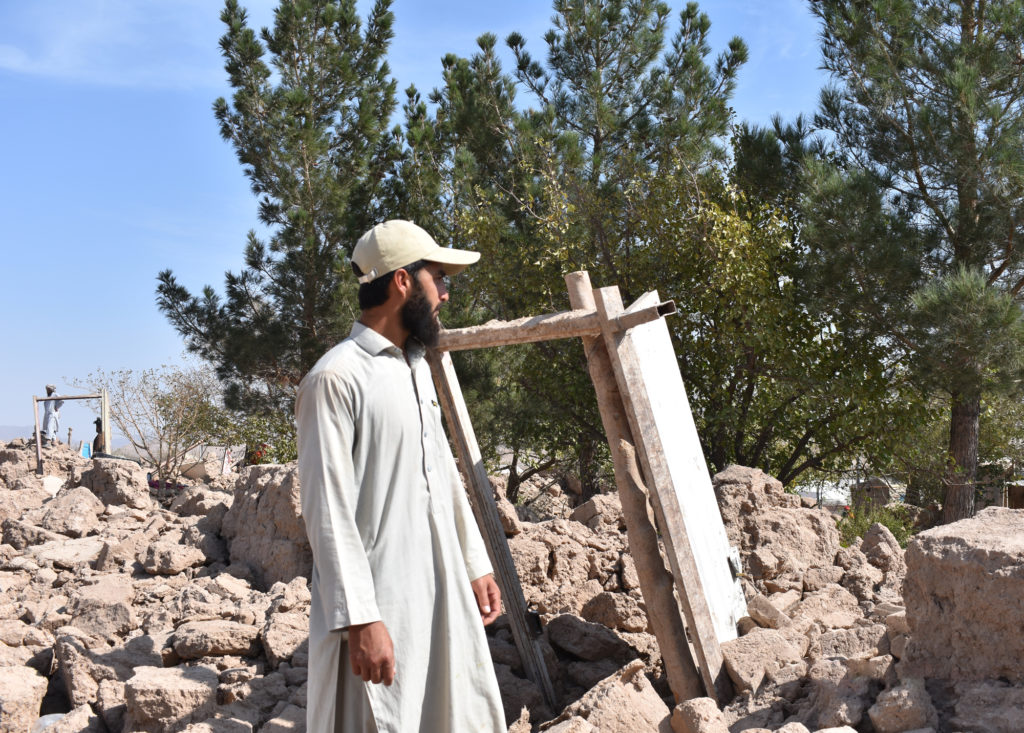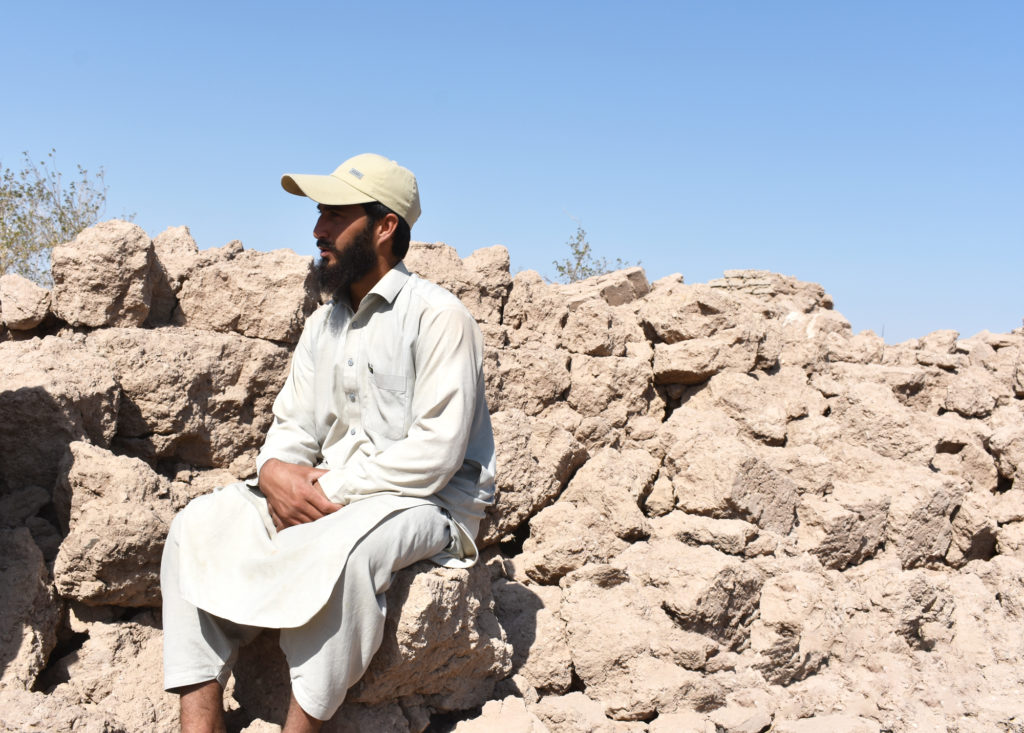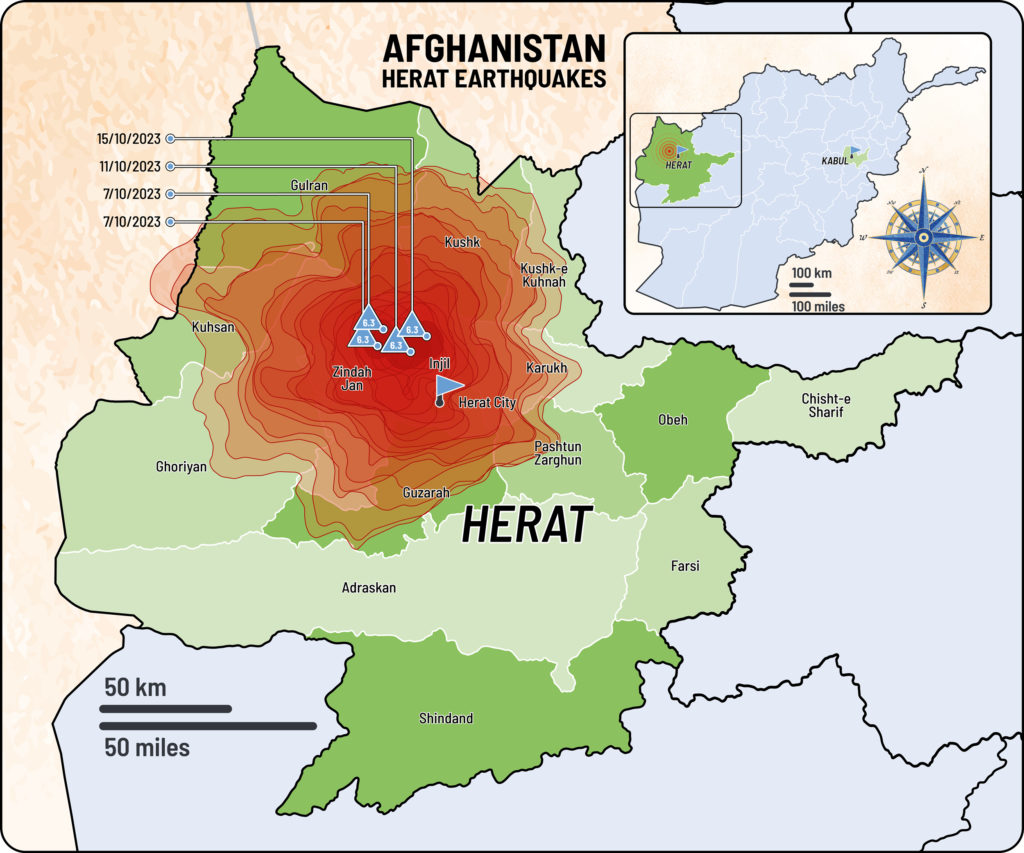Surviving the Unthinkable
In the Kernil-Wardaka district, 26-year-old Abdul Majid* led a content life with his wife, son, daughter, and mother living nearby. Their nights were filled with laughter and joy. Little did they know that a devastating earthquake would have shattered their idyllic existence on 7 October 2023.
On the day of the earthquake, Abdul was working in the city while his family remained in their village. When the quake struck, Abdul made frantic attempts to reach his family, only to discover that the remote hills had severed all communication lines, leaving him anxious and helpless. A friend’s call brought the devastating news: their entire village lay in ruins. Panic and fear gripped Abdul, and he abandoned his job to rush home on his motorbike.
“As I sped towards the village, my mind was consumed with thoughts of my family”, Abdul told us. “The prospect of losing my loved ones terrified me, and I couldn’t stop the tears flowing.” When he finally saw the village in the distance, it resembled a dusty heap, intensifying his anxiety.
Upon reaching the village, chaos reigned. People ran in all directions, searching for their families or mourning their losses. The devastation was overwhelming, and Abdul couldn’t even recognise his own home amid the rubble. Desperation drove him to cry for help, but his pleas went unheard amidst the pandemonium. Tripping on the uneven ground, he lost consciousness, collapsing in their now-wall-less yard.
A little later, Abdul awoke in a white tent, attended by a doctor. He was disoriented but immediately asked about his family. His niece, an employee at the clinic, had reassuring news: his wife, mother, and son had been rescued. However, when Abdul asked about their daughter, his niece remained silent and quietly left the tent. The ominous silence heightened his fears, and he braced himself for the news he dreaded. Later, he learned the heartbreaking truth – his daughter had not survived the earthquake.
His mother and son were treated at the regional clinic and discharged after receiving physical care, but his wife’s mental state was fragile. She was referred to the newly established mental health department run by IAM, a response to the rising psychological distress in the community. Both Abdul and his wife received counselling and medication.
In the days that followed, Abdul struggled to accept the loss of his daughter, but he remained steadfast in supporting his wife’s recovery. He encouraged her to adhere to the prescribed medication and sought guidance from the counselling sessions he’d attended.
Despite the dire circumstances, the villagers found solace in the support provided by humanitarian organisations, which offered food and shelter. The IAM regional clinic, particularly the mental health department, offered a lifeline for many in the community who grappled with depression and grief in the aftermath of the earthquake.
Two weeks have passed since the tragic earthquake, and while Abdul still finds it hard to believe his daughter is gone, his wife is on the path to recovery, and he remains determined to help her heal.
Abdul told us, “IAM’s mental health services are essential for our village, providing much-needed support for those who have struggled with depression after losing their family members in the earthquake.”
For details on how to donate, please email ![]() @
@![]()
*Name changed to protect individuals privacy.


